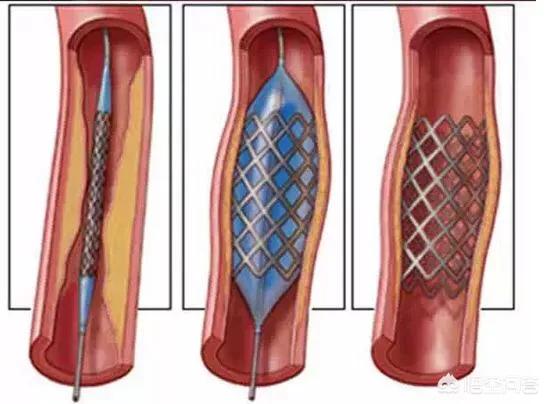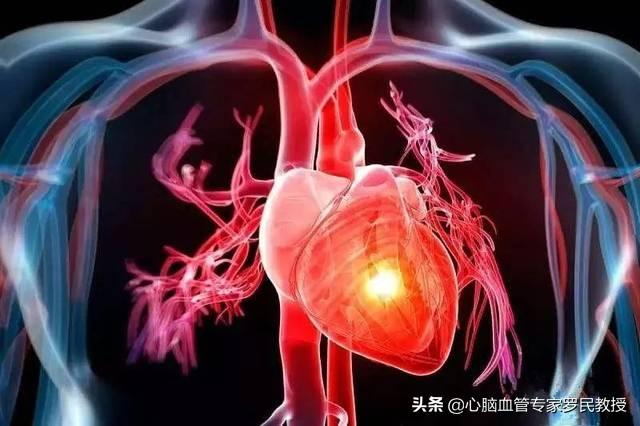What's wrong with shortness of breath going up stairs after stent surgery?
There are three most common reasons for dyspnea after cardiac stent surgery.
1. Cardiac insufficiency. Acute myocardial infarction is a common subtype of coronary artery disease, because of the interruption of the blood supply to the myocardium leads to necrosis of cardiomyocytes, because of this problem may lead to the loss of contractile function of cardiomyocytes, causing cardiac systolic or diastolic insufficiency, even if cardiac stenting is performed, some patients will still suffer from the symptoms of cardiac insufficiency, and the most typical symptom is dyspnea after activity.
2. Angina pectoris. The anatomical condition of coronary artery of some patients with coronary artery disease is multi-branch stenotic lesion, so implantation of stent can only solve part of the blood vessel, and residual myocardial ischemia may still occur, and some of the patients will show clinical symptoms such as dyspnea after activity, accompanied by chest pain and so on.
3. Drug factors. After cardiac stent implantation, most patients need to take two kinds of antiplatelet drugs, commonly used clinically are aspirin, combined with clopidogrel or Tegretol. Tegretol is one of the mainstream antiplatelet drugs, and one of its most common side effects is dyspnea, which will be obvious in some patients. According to clinical statistics, about 15% of patients will experience the above dyspnea symptoms.
In addition, after stenting, patients with coronary artery disease may suffer from depression and anxiety, and may still experience chest tightness and chest pain with dyspnea, which requires evaluation of the condition in the context of the patient's symptoms and the development of further therapeutic strategies.
Many of us, including our doctors, if you have a stent, you may think about whether it's a stent or not for the rest of your life. Our emergency department doctors are, have done stents a sentence, no matter what the disease can be admitted to the cardiology department ...... how can this be done?
You were born in the gynecology department, and you'll be in the gynecology department when you get sick? No, of course my analogy is exaggerated. I just wanted to let you know that there are many causes of chest tightness and shortness of breath, not just coronary problems or stent problems.
So if so, what could be the problem? First of all, heart problems we also need to consider, if a patient with myocardial infarction, just did a stent discharge, go back up the stairs shortness of breath, it may be that the heart function is not recovered well, but also need a period of time to control the amount of activity. If a patient with angina and no myocardial necrosis has a stent and still has shortness of breath, one reason is that the stenosis has been restenosed, and the other reason is that the shortness of breath is due to some other etiology!
Lungs, many lung diseases will also have asthma symptoms, chronic bronchitis, chronic obstructive pulmonary disease, severe pneumonia, pleural effusion, etc., and even tracheal problems, affecting the ventilation, will certainly have asthma symptoms, so you can not rely on the heart for everything, not very reliable.
Pericardium, some pericardial diseases such as pericardial effusion also have the possibility of shortness of breath, usually with a stent an ultrasound will be done, if the operation caused pericardial effusion certainly have symptoms at that time, will not give you the opportunity to go home and up the stairs.

There are also many patients who have just had a stent during their hospitalization and have a relatively low activity level, and then all of a sudden they go home and go up the stairs, and of course they may experience shortness of breath, and it is only necessary to gradually increase their activity level one step at a time!
There are also some obese patients, stent or not, who are actually wheezing up the stairs and don't lean on the stent, which is a bit of a stretch. There are also some older people who have a declining activity tolerance year after year, and probably also whether braced or not, climbing stairs is not a very relaxing activity for her.
Finally, if the patient is still short of breath after activity after stenting, of course, first of all, it is important to seek medical attention in time for the doctor to evaluate the situation, and secondly, analyze the cause and know the primary and secondary causes before seeing whether to treat or not.
I don't know how you consulted the doctor and I don't have detailed first hand information on the patient.
But from your description, I'm guessing it's not so much about the stent as it is about heart failure, aka "heart failure".
The patient herself is older, and then the condition is more serious (stent indication), then it also means that the medical history is longer, after all, any disease has a developmental process, as a patient in need of a stent, she must have had severe myocardial ischemia before the stent, and therefore the stent, the stent itself does not have an absolute good or bad, it is only a first-aid role, since the follow-up review of everything is normal, so should not be put on the focus of attention! Don't be influenced by what is said on the Internet. Stents are not harmful, as long as they are not abused.

And the stent does not cause patients to experience current symptoms!
These symptoms are more consistent with the clinical picture of a patient with "heart failure".
And this patient's experience is the most common "hotbed" of heart failure.
As I said above, due to the previous severe condition and long history of the disease, then even if stenting is performed to temporarily dilate the narrowed and blocked blood vessels, the previous damage to the myocardial tissues will not go away, and the previously necrotic myocardial tissues will not come back to life, and this kind of damage to the heart will lead to impaired cardiac function and gradual failure.
The degree of risk for these patients is closely related to heart function, the lower the heart function the higher the risk, the five-year survival rate is around 50%, and the treatment is difficult, the vast majority of people through the drug to slow down the rate of deterioration, but the effect is not ideal.

Also, I suspect the condition is not post-stenting!
If this patient really had heart failure, it was definitely not a serious condition, as it was at least grade 2 or higher.
Heart failure is generally categorized into four clinical classes:
First-degree heart failure is not very different from the norm, and as long as you don't engage in high-intensity exercise you won't have any unusual symptoms.
Grade 2 heart failure, on the other hand, is a mild activity limitation that is not severe, although it can be abnormal after activity.
In Grade 3 heart failure, there is a significant limitation of mobility, with severe symptoms appearing whenever you are active, unless you are resting and resting.
And patients with grade 4 heart failure may experience symptoms such as chest tightness and shortness of breath from time to time, even if they lie down every day.
It takes time for this condition to deteriorate, and the description does not give this time, so I think: "It is very likely that the patient's myocardium was harmed by prolonged and severe myocardial ischemia before the stenting, but the degree was less severe at this time so the patient did not have much abnormality", and with the time, the patient and his family have been No targeted intervention, so the heart function in the rapid deterioration, and eventually reached the current level, affecting normal life.

I hope my answer helps you!
If there's anything you don't understand, comment and private message me!
History alone, no tests, suggest a cardiac ultrasound, BNP, lung CT, pulmonary ventilatory function measurements to see if there are any abnormalities?
The heart activity is not giving its best, then the breathing exercise has to help. The faster a person's heart generally beats, the faster they breathe. In turn, when breathing slows down, the heartbeat gradually slows down.
So the heart, which depends on the stent to keep up the blood supply, is really not moving as vigorously as it used to, so naturally the heartbeat count speeds up, and then the breathing speeds up, and shortness of breath occurs.
It is better to rest when you are physically ill. Avoid doing heavy exercise.
This question and answer are from the site users, does not represent the position of the site, such as infringement, please contact the administrator to delete.